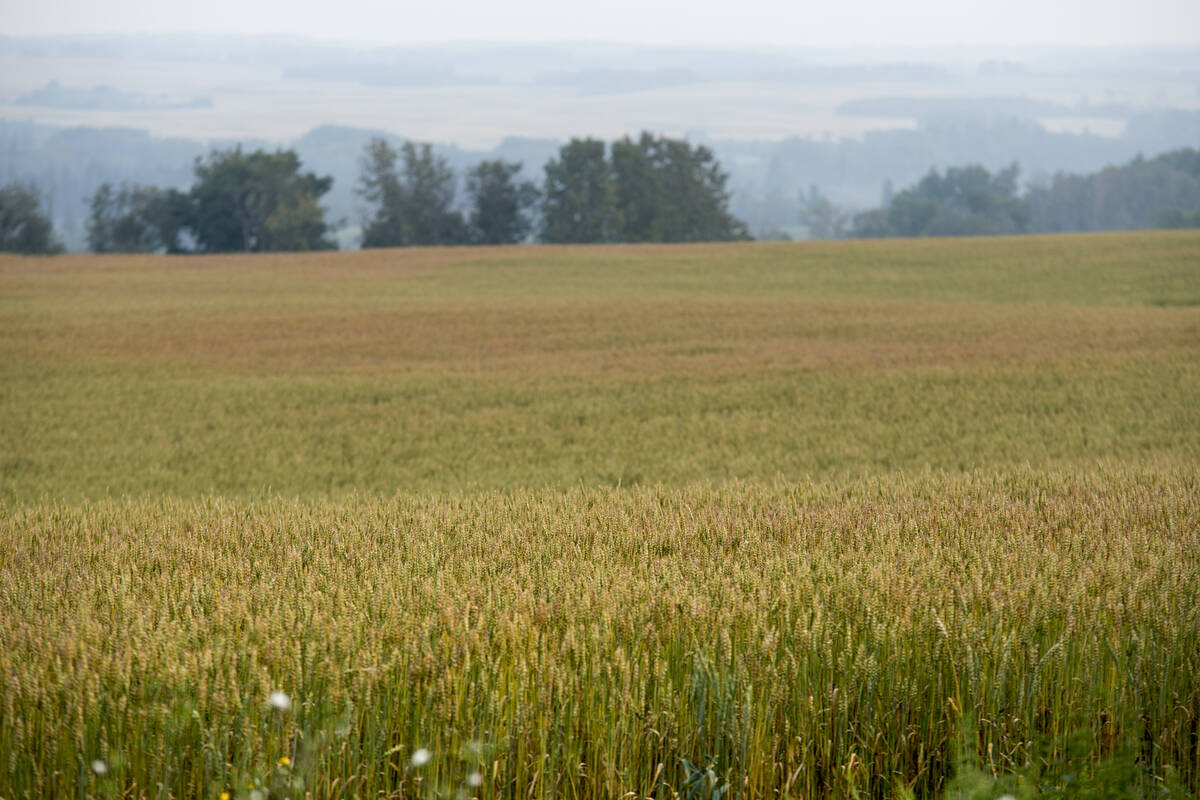The growing sophistication of farm operations is reshaping farm transitions, and the unprecedented challenges these legacy businesses face demand our immediate and strategic attention.
For generations, Canadian farms have been more than businesses.
They are the backbone of our national food security and rural economic infrastructure. They are also living legacies, passed down through families with pride, hard work and an intimate connection to the land.
Read Also

Vintage power on display at Saskatchewan tractor pull
At the Ag in Motion farm show held earlier this year near Langham, Sask., a vintage tractor pull event drew pretty significant crowds of show goers, who were mostly farmers.
The transformation of Canadian agriculture over the past few decades has been revolutionary. Farms that once relied primarily on manual labour and traditional knowledge now operate with GPS-guided machinery, drone technology and data analytics.
This shift has dramatically changed how farms operate, creating both exciting opportunities and complex challenges for farmers in terms of levels of capital investment required and the ability for knowledge to transfer between generations.
And with 40 per cent of Canadian farmers set to retire over the next 10 years, engaging the next generation in the industry isn’t just important, it’s imperative for modernizing and sustaining our agricultural sector.
Young farmers embody entrepreneurial risk-taking, often bringing fresh perspectives and embracing new technologies and sustainable practices.
By creating the right incentive structures that position farming as a strong entrepreneurial and innovation-rich venture, we can retain and attract the next generation of smart young farmers who are eager to apply their drive to advancing agricultural practices.
As chief executive officer of Farm Business Consultants, a national network of accounting and tax specialists, I’ve seen firsthand how the evolving landscape of Canadian agriculture — from recent tax changes to advancing technology requirements and increasing capital demands — have transformed farm succession planning.
Young farmers play a key role in navigating these challenges. Their knack for embracing modern farming methods can boost productivity and help us make the most of our farmland in a sustainable way.
This approach is vital for maintaining food security over the long term and maintaining independence in the decisions we make regarding our food production.
Today’s farmers face a complex and unforgiving economic reality. They are asset-rich but cash flow challenged and managing operations that can require millions of dollars in capital investment just to remain competitive.
The financial pressures on modern farmers are multifaceted. They must contend with the high costs of land, equipment and infrastructure while navigating the challenges of rising operational expenses and fluctuating fuel costs.
Additionally, technological advancements in precision agriculture, while promising increased efficiency, demand substantial upfront investment.
These cutting-edge tools and data-driven strategies are no longer optional luxuries but essential components for staying competitive in a rapidly evolving agricultural marketplace.
Land prices have skyrocketed, with some prime agricultural areas seeing values increase by more than 300 per cent in the last two decades.
For many farm families, their land represents their most valuable asset, but it’s also the hardest to divide or transfer without facing significant tax liabilities.
All of this means that it’s important to consider several factors as farms plan for the future of their businesses.
Succession planning isn’t only a financial exercise, it’s also about preserving family values, maintaining operational continuity and ensuring the next generation has both the tools and the opportunity to continue a proud agricultural tradition.
Family dynamics play a vital role. Open, transparent communication about expectations, capabilities and long-term vision becomes as important as any financial strategy.
The most successful transitions I’ve witnessed are those where families approach the process with mutual respect, clear communication and a shared commitment to the farm’s future.
Additionally, succession planning should consider the broader community impact. Farms are often central to rural communities, providing employment and supporting local economies. A well-executed succession plan can ensure that these community benefits continue for generations to come.
When succession planning begins years before the intended transition, families can successfully navigate complex tax situations, gradually transfer operational control and even expand their operations during the transition. Success stories all have one thing in common: they started early.
In contrast, reactive planning severely limits options, forces important decisions under pressure, often leads to higher tax implications and misses opportunities for strategic restructuring.
Without proper planning, we’re seeing more families forced to sell to corporate entities or foreign investors, a trend that deeply concerns me as someone committed to preserving Canada’s agricultural heritage and diversity.
The difference between proactive and reactive succession planning could not be more dramatic.
Proactive planning opens doors for thoughtful structuring, maximizes tax efficiencies, preserves operational stability and often has far more chance of successfully maintaining family harmony.
Based on my years of experience, successful succession planning hinges on several critical considerations, which I believe farmers and the industry should prioritize:
- Engage early: begin the succession planning process years in advance to optimize operational structures and maximize tax benefits.
- Strategize with tax planning: stay informed about potential tax changes and prepare for various scenarios to minimize tax burdens during the transition.
- Evaluate operational structures: regularly review ownership structures to identify the unique benefits they offer and align them with long-term succession goals.
- Build financial resilience: diversify income streams, accumulate cash reserves and consider innovative funding models, such as community-supported agriculture or local business partnerships, to secure long-term sustainability.
It’s also important to consider the human element in any succession planning conversation. This includes identifying and nurturing the next generation of farm leaders, whether they’re family members or not.
Successful transitions often involve a gradual transfer of knowledge and responsibility, allowing younger generations to gain experience while the older generation can still provide guidance.
A succession plan isn’t just about retirement. It’s about preserving a legacy of Canadian agriculture that deserves to continue.
The challenges are significant, but they are challenges we can tackle. Remember, every farm’s situation is unique. There’s no one-size-fits-all solution. However, the principles of early planning, strategic thinking and open communication apply universally.
Don’t wait until retirement is imminent. The most valuable gift that anyone can give their family’s agricultural legacy is starting this process now while options remain open and the most beneficial strategies can be implemented effectively.
Yves Millette is chief executive officer of Farm Business Consultants, a national network of accounting and tax specialists.

















